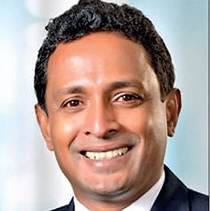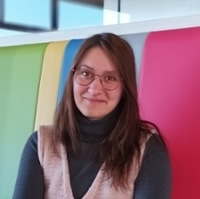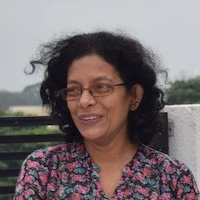Workshops
Pre-Conference Workshop: Future of Data Scientists and Statisticians with the Development of AI - In collaboration with the International Statistical Institute (ISI)
Description:
Synopsys:
- ISI capacity development & the ISI Academy: The International Statistical Institute is dedicated to making a meaningful impact through capacity development in statistics and data science. The ISI Academy was created in 2023 to help develop the capacity of statisticians and data professionals in ways tailored to ISI’s comparative advantages. Its primary goal is to address the capacity development requirements within the field of statistics and data-related professions by leveraging ISI’s expansive global reach of members. This pre-conference workshop is the first ISI Academy-related activity in Sri Lanka.
- Trusted smart statistics, advantages and requirements: The discussion on advantages, disadvantages, limitations, and requirements of using alternative data sources informs the debate in national and international statistical systems worldwide. The temptation to replace rigorous and costly data collection approaches with “smarter” ones is increasing. However, evaluating the reliability of statistics produced by elaborating alternative data sources is mandatory. In this work, we analyze the relationship between data science, new data sources, machine learning, citizen science, smart statistics, official statistics and the role of probability sample surveys.
- Statistics in the Information Economy: Industrial statistics grew up in an era when manufacturing was the primary engine of commerce. Today, the driver is information technology. This talk discusses how statisticians need to adapt to contribute to this new business model, with particular emphasis on computational advertising, autonomous vehicles, operations management, and large language models. Remarkably, many of our old tools are still relevant, even as the new problem space poses fresh research challenges for our employment and educational systems.
- Discussion
Resource Persons: Prof. Nalini Ravishanker, President-Elect (2025–2027), ISI; Prof. Elisabetta Carfagna, University of Bologna, Italy & Prof. David Banks, Duke University, USA.

Prof. Nalini Ravishanker is a Professor of Statistics at the University of Connecticut (UConn), Storrs. She holds a PhD in Statistics and Operations Research from New York University and a B.Sc. in Statistics from Presidency College, Madras. Her research focuses on time series analysis and its interdisciplinary applications. She has published over 140 papers, two books, and one edited volume. Prof. Ravishanker is a Fellow of ASA, AAAS, and CASE, an Elected Member and President-Elect (2025–2027) of ISI, and Editor-in-Chief of Applied Stochastic Models in Business and Industry.

Prof. Elisabetta Carfagna is a Full Professor of Statistics at the University of Bologna. She serves as an elected Council Member of the ISI (2025–2029) and ISBIS (2023–2027), Chair of the ISI Special Interest Group on Data Science, and member of the ISI Committee on Agricultural Statistics. Formerly a manager in remote sensing and GIS R&D, she has led numerous international projects with European and UN organizations. She contributed to the Global Strategy to Improve Agricultural and Rural Statistics. Her research focuses on data science, survey design, and the integration of geospatial and administrative data for agricultural and environmental monitoring.

Prof. David Banks is Professor of the Practice of Statistics at Duke University. He earned his PhD in Statistics from the University of California, Berkeley, and was a visiting lecturer at the University of Cambridge. He has held senior positions at Carnegie Mellon University, the U.S. Department of Transportation, and the FDA, and served as Director of the Statistical and Applied Mathematical Sciences Institute (2018–2021). A Fellow of the ASA, IMS, and AAAS, and past president of ISBIS and the Classification Society, his research spans computational advertising, text networks, Bayesian behavioural game theory, forensics, and high-dimensional data analysis.
Date & Time: Tuesday, 18th November 2025, 18.00 - 20.00 hours (SLST).
Online: Zoom Link.
Workshop Fee: Free for those registered Here.
Pre-Conference Workshop: The Future of Business: Operations, FinTech Innovation & Executive Leadership
Description:
Not just for techies! Learn how AI makes everyday tasks easier, faster, and more fun. Topics.
- Chasing Dragons: Mr. Gihan Mendis
- "Fintech" that Actually Moves the Needle: Mr. Shankar Dharmaratne
- Best Version of Yourself: Mr. K V Kuganathan
- Discussion
Resource Persons: Mr. Gihan Mendis, Co-founder & CEO of Engenuity AI; Mr. Shankar Dharmaratne, Digital Transformation Leader; Mr. K. V. Kuganathan, Group CIO of Janashakthi Group.

Mr. Gihan Mendis is a technology leader with 25 years of global experience at HP, IBM, Dell, and SAP, driving digital transformation initiatives. He is the Co-founder & CEO of Engenuity AI, CTO & Head of Digital at OpsTalent, and author of the Margosa Development Program. Gihan also serves as a Director at Climata Academy and holds an MBA from Cardiff Metropolitan University (UK).

Mr. Shankar Dharmaratne is a digital transformation leader with extensive experience in banking and telecommunications. He led HNB’s digital initiatives and regulatory collaborations and previously pioneered Sri Lanka’s first mobile payment product “TOUCH” and Direct Operator Billing services at Dialog Axiata.

Mr. K. V. Kuganathan is an award-winning digital and IT strategist with vast experience in banking, finance, and insurance. As Group CIO of Janashakthi Group, he leads digital transformation initiatives and serves on key IT boards, including the British Computer Society (UK). He was recognized as CIO of the Year 2023 and a Top 25 Digital Transformation Leader 2024.
Date & Time: Tuesday, 18th November 2025, 9.00 - 12.00 hours (SLST).
Venue: Department of Statistics & Computer Science, University of Peradeniya.
Workshop Fee: Free for those registered Here.
Workshop 1: Collaborative Learning in Computer Science Higher Education: Tips, Tricks, and Tools
Description:
Collaborative assignments have become a cornerstone of computer science education—reflecting both the realities of modern-day work in
data science and software engineering and offering a practical solution for managing large student cohorts. However, the implementation
of group work often proves challenging, particularly in international settings. Differences in project prioritization,
unequal participation (e.g., "low-riders" relying on more engaged peers), and difficulties in fairly assessing individual
contributions frequently emerge.
In this interactive workshop, we will explore various models of collaboration in student assignments, examine their effects on
learning outcomes, and share strategies for transparent and fair assessment. We will also discuss how software tools can support
and enhance the collaborative learning experience, making it more effective and equitable for all students.
Resource Person: Prof. Alexandra Blank - Leiden University, The Netherlands

M.Ed. Alexandra Blank supports MSc Computer Science students and PhD candidates at the Leiden Institute of Advanced Computer Science (LIACS) of Leiden University, The Netherlands, in their personal and professional development. In addition to her coaching role, she coordinates the Master Class, a course designed to prepare master's students for successfully completing their thesis research projects.
Date & Time: Friday, 21st November 2025, 15.00 - 16.30 hours.
Venue: JRDC
Workshop Fee: Rs. 3,000/- (Rs. 1,500/- for conference participants & students)
Workshop RegistrationWorkshop 2: Computational Biology: Predicting Structure and Function of Proteins
Description:
Since the sequencing of the human genome, biology has become a source of challenging inference problems. Several recent advances in
machine learning and computational modelling have been applied to biological problems at the levels of molecular sequences,
three-dimensional structures and in the prediction of their functions. This workshop will introduce participants to some of the
challenging problems to which machine learning techniques have been applied, with the focus on predicting the structure and function
of proteins.
Content:
- Introduction to Neural Networks and Machine Learning
- Proteins: Sequence, structure and function
- Predicting protein structures — architecture of AlphaFold
- Hands-on work on predicting protein secondary structure
- Discussion
Resource Persons: Prof. Mahasen Niranjan, University of Southampton, UK & Dr. Rupika Wijesinghe, University of Colombo School of Computing, Sri Lanka.

Mahesan Niranjan is professor in the School of Electronics and Computer Science at the University of Southampton, UK. Prior to this appointment he has served as Lecturer in Information Engineering at the University of Cambridge and as Professor of Computer Science at the University of Sheffield. At Sheffield, he has also served as Head of the Department of Computer Science and as Dean of the Faculty of Engineering. He graduated from the University of Peradeniya, Sri Lanka, holds a Masters’ degree from Eindhoven, The Netherlands, both in Electronics Engineering, and a PhD from The University of Cambridge, England in Information Engineering. His research interests are in the field of Machine Learning, in recent times he has focused on biological and medical applications.

Dr. Rupika Wijesinghe is a Senior Lecturer at the University of Colombo School of Computing (UCSC), Sri Lanka, and Programme Co-Coordinator of the M.Sc. in Bioinformatics. Her research focuses on bioinformatics workflows, semantic technologies, and tools that make complex computational analyses more accessible to domain scientists. She has contributed to advancing bioinformatics education in Sri Lanka through curriculum development and postgraduate training. In addition, she collaborates on interdisciplinary projects connecting computing with molecular biology and biotechnology.